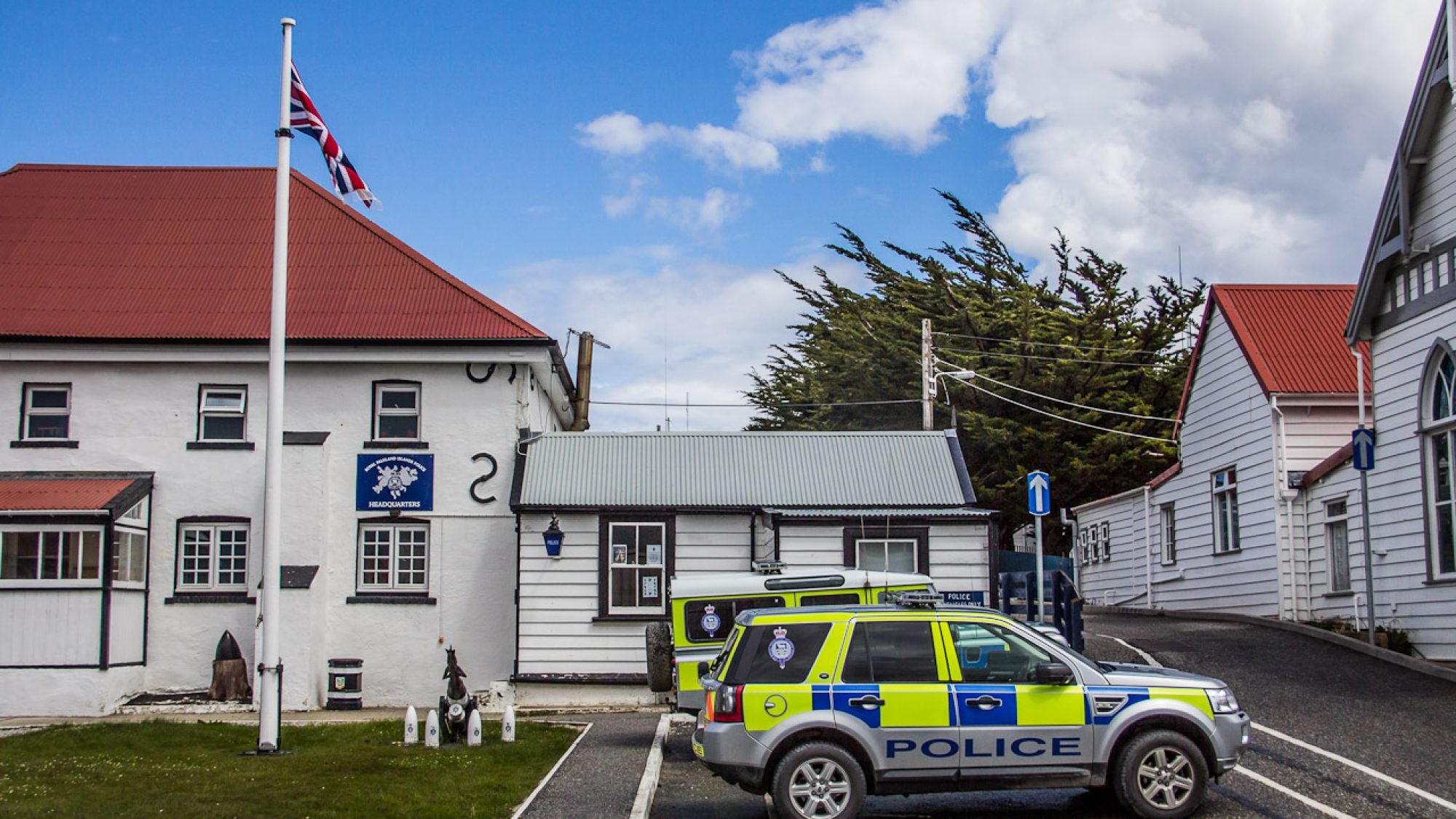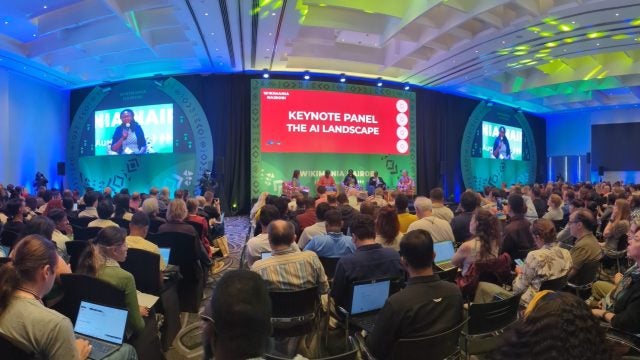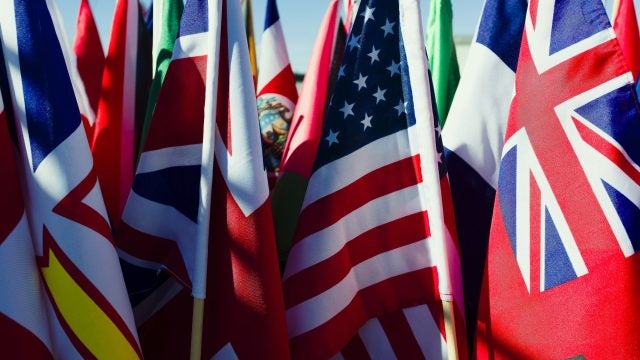
Title: The Georgetown Journal’s Guide to the Falkland Islands Dispute
The Falkland Islands, known by Argentina as Islas Malvinas, remain a center of contention between Argentina and the United Kingdom. Around the 30th anniversary of the brief but deadly 1982 war that altered the modern history of the United Kingdom and began the decline of the Argentine Junta, hawkish language has flooded the media and brought the UN and other international institutions into the conversation.
Rumors abound as to why the administration of President Cristina Fernandez de Kirchner has reignited the long-standing dispute over the Falkland Islands. Clearly the 30th anniversary has played a role in the heightened tensions. British commentators have suggested that President Kirchner is attempting to distract from domestic issues, such as inflationary danger and continuing unrest among rural agricultural exporters. But at the same time, Argentine cabinet members have retorted that their President has high levels of popularity and ant their economy is expanding. Argentinian leaders have claimed the social unrest and riots in London and the weak British economy are the reason Prime Minister David Cameron has made Falklands a national issue. Finally, exploratory oil wells in the region have had mixed results, but a big oil find could place Argentina in the ranks of the booming Latin American energy sector if it controlled the islands.
Regardless of the speculative reasons for renewed interest in the sparsely-populated islands, the increased tensions are real. In December, President Kirchner suggested that the islands were a global cause because the British were taking Argentinian natural resources. Prime Minister Cameron responded by declaring the islanders wished to remain British, and the Argentinians were guilty of colonialism for seeking to impose their will on the islands. In the aftermath, there were rallies against the British in Buenos Aires with some burning the British flag. In January, Prince William was stationed to the islands as part of a search and rescue team, and the Royal Navy is deploying the powerful new air-defense destroyer the HMS Dauntless to replace the HMS Montrose.
While the buildup in tensions may seem frighteningly familiar to those who witnessed the burning ships and downed planes on their televisions in the 1980s, there are a few key differences. One new important factor on the side of Argentina is the support of Mercosur, a regional trading block of Argentina, Brazil, Paraguay, Uruguay and other associate members. Mercosur has rallied behind Argentina on the issue, electing to close its member state ports to ships flying the flag of the Falklands in December. This will make it exceedingly difficult for the U.K. to diplomatically frame Argentina for the increasing tensions. Despite the islanders support for continued British sovereignty, Mercosur’s involvement suggests success for Argentina in painting the situation as one of British infringement on the entire South Atlantic region.
In a clearly calculated move, President Kirchner has responded to the U.K.’s deployments by taking the fight to the United Nations, where it hopes able to convert it’s regional support into international support. Argentina made a formal complaint the U.N. regarding British “militarization” of the islands this past week. Fernandez declared: “We cannot interpret in any other way the deployment of an ultra-modern destroyer accompanying the heir to the throne, who we would prefer to see in civilian attire.” The Argentinian foreign minister met with U.N. Secretary General Ban Ki-moon, who acknowledged the heightened tensions and called on the two countries to avoid an escalation of the crisis.
But the conflict has not stopped there. At the U.N. in New York, Argentina’s Foreign Mminister Hector Timerman declared that intelligence has revealed the arrival of a Royal Navy Vanguard Class nuclear submarine, a class that carries Trident cruise missiles. The U.K. has dismissed the claims as “absurd” and has refused to comment on the location of its nuclear armaments. Timerman said the deployment would be a violation of the Treaty of Tlatelolco prohibiting nuclear deployment in Latin America and the Caribbean. This argument could gain increased traction in Latin American regional bodies.
While the dispute over the Falkland Islands is raised frequently, this year’s dispute is approaching a crisis. The 1982 Argentine invasion to a full scale military conflict was wholly unexpected. While war is unlikely, the escalating rhetoric and actions suggest the potential for violence
More importantly, this reignited discussion has given a glimpse of a new regional paradigm for Latin America. Mercosur’s increased political presence is only one example of recent Latin American integration on certain issues. The strategy of the West of dealing with Latin American nations on an individual basis may not be sustainable as integration continues to grow. The U.K. can not assume that Argentina is the same dilapidated dictatorship that it warred with in the 1980s, and cannot assume that Latin American nations will not rally behind one of their own.
. . .
Kevin Sullivan is a sophomore in the Edmund A. Walsh School of Foreign Service at Georgetown University, and he serves as a section editor for the Georgetown Journal of International Affairs’ Look Back section.
Image Credit: Alex Petrenko, CC BY-SA 3.0, via Wikimedia Commons
This is an archived article. While every effort is made to conserve hyperlinks and information, GJIA’s archived content sources online content between 2011 – 2019 which may no longer be accessible or correct.
Recommended Articles

This article compares U.S. and Chinese approaches to artificial intelligence (AI) exports in Africa and examines how these disparate approaches have produced both downstream benefits and challenges for the region.

On May 20, 2025, the World Health Assembly unanimously adopted the World Health Organization (WHO) Pandemic Agreement, an international treaty designed to strengthen pandemic prevention, preparedness, and…

As the Trump administration proposes a sweeping overhaul of the US foreign assistance architecture by dismantling USAID, the Millennium Challenge Corporation (MCC), and restructuring the State Department, there is an…